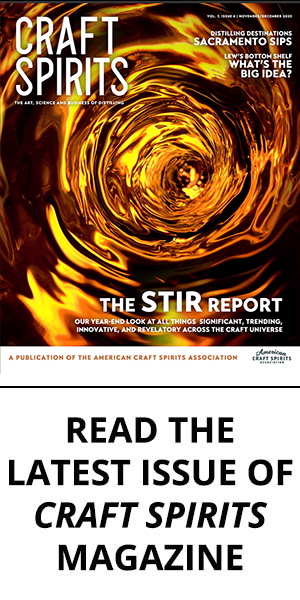
Gung ho! When we hear those words today, we think of someone who’s over-the-top enthusiastic about something, a hard-charger, a hustler. That kind of energy can drive a person to success, and in turn drive a business to success. That kind of energy also doesn’t always look where it’s going, doesn’t always care about who might be in the way, and certainly doesn’t look at who’s in the rear-view.
There’s something to be said for that, especially in a business that rewards energy and boundless optimism. But it’s not the only way to succeed. The quiet genius, the introverted planner and the socially awkward salesperson are all present in the industry. The hard charging ball of fire is just not in every businessperson’s soul, and that’s a fact.
We do all have in us the ability to work together, though, which is what gung ho meant, originally. It’s the anglicized name of the Chinese Industrial Cooperatives, set up in China in the 1930s by Western expatriates who wanted to help get China on its own feet, producing valuable manufactured goods that would let it take its rightful place in the world economy. Their Chinese designation, Gōngyè Hézuòshè, was commonly abbreviated to gōng hé, two Chinese characters that meant work and together.
The term was picked up by a U.S. Marine Corps major, Evans Carlson, who took its ideal of people working in harmony toward a single goal and successfully applied it to his command of the 2nd Marine Raider Battalion in World War II. Gung ho spread throughout the Corps; the idea that every Marine’s efforts were dovetailed with every other Marine’s, with all efforts directed to the mission, to the goal.
Working together is something that the craft spirits industry could use more of. While competition is inevitable, and undoubtedly healthy in the long run, it is best when the competition is clean, and moves the whole industry forward. That’s the spirit of gung ho, with everyone working toward the same goal, which is an expanding market for small producers selling high quality spirits.
How does that work? I used to purchase computer products for a pharmaceutical company: computers, printers, network equipment, cabling and installation services. I would gather information, and when I’d selected two or more top candidates, I’d invite the representatives to visit and give me a presentation on their products: price, performance, reliability and potential for expansion.
I had one rule for the presentations that I never divulged to the representatives. That may seem unfair, but it was intended to make the process more fair, and to keep things clean as well. The rule was that I did not buy from representatives and companies that ran down their competition, that slagged the other companies. I wanted to hear about their products, from them, not negative, possibly slanted statements about someone else’s.
I’ve heard way too much of that from small spirits producers. Anyone who sources any product is “cheating.” A gin maker who doesn’t distill his or her own neutral spirit is “a fake.” Distilling on a column isn’t “real craft.” Only malting your own barley is “true craft,” until the farm producer comes along and is “truer,” I guess. If a distillery was sold to a larger company (or an individual, or an investment firm), they are no longer craft, even if nothing in their process, ingredients or staff has changed.
You know what? Don’t really want to hear any of that. I have my own opinions on those issues, for one thing, and for another, who the hell died and made you the God of All Craft Spirits? Not to mention, why should I take your word for it, when your information might be out of date, or presented in a way that makes you look better? And if you’re telling customers all that when they may not know enough about the category to question it, well, you’re bamboozling them.
Here’s another thing: that applies to established distilleries as well. Don’t sling me a load of bull about “soulless big distillers” who use “commodity grains” and “huge column stills” that “make more in a day than we make in a year.” You sound like a whiny nerd saying that stuff, especially when they’re mostly making great spirits, in huge volumes, at prices that should scare you.
Gung ho, my friends. Work together, even when you’re competing. Competition should focus on your own products, your own processes, your own ingredients. If you’re talking trash about someone else’s product, it kinda makes me wonder why you’re not talking more about yours.
If you talk trash about your fellow distillers, it will get back to them. It will poison the well of consumers. It will destroy your credibility. It damages the reputation of the industry as a whole.
There is more that unites you than divides you. There is more that unites you with the large distillers than divides you. Taxes and regulation, for one thing: spirits taxes are unfair at any level. Big distillers provide the funding and savvy, small distillers provide the numbers (and often the jobs numbers) needed to convince legislators. Work together on cultural issues like underage drinking, overserving in tasting rooms and bars, and the negative image of “hard” liquor. Work together to achieve together.
Gung ho! It’s an idea that’s 85 years old, and right on time for the craft spirits business.

Lew Bryson has been writing about beer and spirits full-time since 1995. He is the author of Tasting Whiskey.


